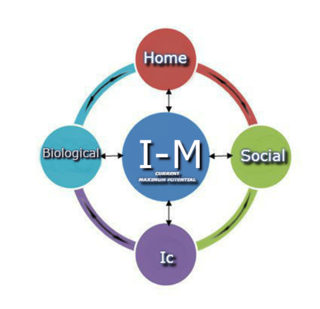Trust
Why Do We Need to Feel Valued?
Human beings are not so different from each other after all.
Posted May 18, 2020 Reviewed by Lybi Ma

We all want the same thing: simply to be valued by somebody else. Think about every person you have ever met. They just want to feel valued. I want to feel valued, and so do you. By someone. Right?
I think this universal human need has very ancient roots. Millions of years ago, we were not the fastest animal, not the strongest, not the biggest animal. We were isolated mammals scurrying around, trying not to be lunch. We were prey.
And then we formed these small social groups, and our survival potential increased so dramatically that human beings are everywhere. But to stay a member of that protective group, you have to contribute something: You have to have value.
When we sense that somebody else sees us with less value, we worry that we will be kicked out of our protective group, and some predator will come and eat us. That we will be lunch. That we will not survive.
This survival mode explains why I get angry, anxious, or sad when I feel less valued. The limbic part of my brain worries I may get kicked out of my protective group and be easier prey. Right or wrong, just the perception of being devalued activates our ancient, irrational, emotional, and impulsive limbic response.
At that moment in time, it's the best you can do. But if you don’t like it, you can change it. You can retain your self-worth and value. Instead of seeing people as dong less than they can, see people as doing the best that they can.
Rather than getting defensive when feeling devalued, you can wonder why a person is trying to make you feel less valuable. We all want the same thing: to feel valued. Why is this person trying to feel valuable by putting me down? What is going on?
I don’t like it. But rather than worry, I will wonder. And after being reflexive, I can be reflective. I can look again at why they do what they do.
Look again. Again look. Re-spect. Treat that person with respect. I will respect that they see me as less valuable, but I don’t have to agree with it.
When is the last time you got angry at someone treating you with respect? You don’t.
When I feel respected, I feel valued. So will that other person. When I feel valued, I am more likely to trust. So does that other person. Respect leads to value, and value leads to trust. A person who feels valued develops trust in that person.
And now you have formed a group. And are less likely to be lunch for some predator. Respect leads to value, and value leads to trust, the very foundation of a group. By treating each other with respect, we are decreasing those fearful limbic responses, and that is a contribution to the group.
You can use value to remain valuable.
At each and every moment, you can remind someone of their value. And whenever you remind someone of their value, you increase your own value.
We can all relate to each other. This common thread binds us. At each and every moment in time, you can remind someone of their value. And whenever you remind someone of their value, you increase your own value.
You control no one; you influence everyone. What kind of influence do you want to be?
Being judged usually makes you feel less valuable, activating a defensive limbic response. In a polarized world, divided into contentious groups, one tribe begins to devalue another tribe. Now millions of people may feel disrespected and distrusted by each other. What happens then?
We do not need to continue going down that road.
Now more than ever, the coronavirus has shown us how much more we have in common than separates us. We all want the same thing—to survive. But we no longer need to have someone else perish to thrive or die to survive. We are all stronger when we cooperate than when we compete.
Respect leads to value, and value leads to trust. People who trust feel safer than those who fear. You can use value to make someone less stressed, less angry, anxious, or sad, and more confident that they can remain in their protective group. Try it today, at home, during these crazy days of Corona. Remind someone of their value and see what happens. Watch how they respond and how you feel.
We all want the same thing. We are more alike than different. At our core, we are all part of one group, one tribe: It’s called humanity.
References
I believe we are always doing the best we can. I call this our I-M. This is who I am and I Matter. Our I-M is always adapting to Four Domains. Our Home Domain, our Social Domain, our Biological Domain of our brain and body, and our Ic Domain or how I see myself and how I think other people see me. Using the I-M lens there is no pathology, there is no sickness. No one is broken. We are at our I-M, doing the best we can at this moment in time, always adapting to even the smallest change in any of the Domains in the very next second to another I-M.




